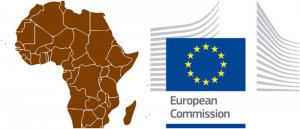1. EU and Philippines to Revive Stalled Trade Negotiations
The EU and the Philippines have declared their plan to investigate the revival of talks for a forward-looking, equitable, and environmentally conscious free trade agreement (FTA), placing sustainability as a central tenet. In the coming days, both entities will initiate a mutual ‘scoping process’ aimed at gauging their alignment regarding the prospective FTA. A positive outcome from this process, followed by consultations with member nations, would enable the EU and the Philippines to recommence FTA negotiations.
The relaunch of talks was at the top of the agenda of European Commission President Ursula von der Leyen during her visit to the Philippines.
President von der Leyen engaged in discussions with Philippine President Ferdinand Marcos Jr. to enhance relations, which had experienced deterioration due to human rights concerns in recent times. In a joint statement, Von der Leyen expressed that this marked the initial visit of an EU commissioner to the Philippines over 60 years of diplomatic ties, and she believed it would pave the way for “expediting a fresh phase of collaboration.”
“The Philippines is a key partner for us in the Indo-Pacific region, and with the launch of this scoping process we are paving the way to taking our partnership to the next level,” von der Leyen said.
After recommencing FTA negotiations with Thailand earlier this year, this declaration highlights the significant value of the Indo-Pacific region within the EU’s trade priorities. It sets the stage for enhanced trade connections with another dynamic economy in South-East Asia, solidifying the EU’s strategic involvement in this rapidly developing area.
The proposed agreement involves a range of ambitious provisions, including substantial commitments for market access, efficient sanitary and phytosanitary procedures, and the safeguarding of intellectual property rights, including Geographical Indications.
Notably, the EU places a significant emphasis on sustainability within this FTA. The core of the agreement is set to incorporate rigorous and enforceable regulations about Trade and Sustainable Development (TSD). This underscores the EU’s commitment to fostering responsible and sustainable trade practices within its economic partnerships.
Alber & Geiger can assist to get an advantage in trade negotiations goals with a proven track record.
2. Commission Intensifies Efforts to Safeguard Children from Unsafe Toys
The European Commission has introduced a new Toy Safety Regulation aimed at enhancing child safety by amending the existing guidelines. While toys introduced into the EU market are already recognized for their safety standards on a global scale, these proposed revisions seek to further fortify this safeguarding, particularly against potentially harmful chemicals.
The envisioned regulations also target the reduction of the considerable number of unsafe toys that are currently available within the EU, with a particular focus on those sold online. This initiative not only strives to create a more equitable environment between domestically produced toys and imported counterparts but also underscores the Commission’s dedication to child welfare.
Simultaneously, the proposed rules ensure the unobstructed circulation of toys across the Single Market, preserving the principle of free movement while enhancing the overall safety of toys available to children. This initiative, taken by the European Commission, signals a concerted effort to enhance child protection, establish equitable competition, and maintain the high standards of toy safety within the EU.
Building upon existing regulations, the current proposal seeks to update safety standards for toys marketed within the EU, regardless of their origin. The primary goals of this proposal are:
- Enhancing Protection against Harmful Chemicals: The proposal not only maintains the ban on carcinogenic, mutagenic, or reproductive toxic substances (CMRs) but also extends the prohibition to other detrimental chemicals. Specifically targeting chemicals with adverse effects on children, the proposal forbids substances such as endocrine disruptors, those affecting the respiratory system, and toxins to specific organs.
- Amplifying Enforcement: To ensure the availability of only safe toys in the EU, the proposal mandates a Digital Product Passport for all toys. This passport includes compliance information as per the proposed Regulation. Importers must furnish digital product passports at EU borders, including for online sales. An innovative IT system will screen passports at external borders, identifying shipments requiring thorough customs inspections. While national inspectors will continue conducting checks, the proposal grants the Commission authority to remove unsafe toys from the market in cases not explicitly covered by the Regulation.
Our experienced team can help influence opinions and agendas.
3. Commission Takes Action on Animal Testing Phase-Out Following European Citizens’ Initiative
In response to the European Citizens’ Initiative titled “Save Cruelty-Free Cosmetics — Commit to a Europe Without Animal Testing,” the European Commission announced in July its commitment to expediting the reduction of animal testing across the continent. This decisive action signifies the Commission’s dedication to aligning with citizens’ concerns regarding cruelty-free cosmetics.
The Commission plans to introduce a roadmap encompassing both legislative and non-legislative measures aimed at minimizing animal testing. This roadmap’s overarching goal is to transition towards animal-free regulations within chemicals legislation while concurrently promoting alternative testing methods. Additionally, the Commission aims to reinforce its backing of scientific advancement by facilitating research into alternatives to animal testing and potentially harmonizing Member States’ efforts in this domain.
In response to the European citizens’ initiative’s objectives, the Commission outlines its strategy as follows:
Protect and strengthen the cosmetics animal testing ban: The Commission highlights the existing prohibition on cosmetic products tested on animals under the EU Cosmetics Regulation. While this ban doesn’t cover safety tests for chemical risk assessment mandated by the EU Regulation on the Registration, Evaluation, Authorisation, and Restriction of Chemicals (REACH), the interplay between these regulations is under review by the Court of Justice. The Commission will consider potential legislative changes based on court case outcomes.
Transform EU chemicals legislation: With a commitment to reducing and eventually eradicating animal testing in chemical-related regulations, the Commission plans to collaborate with stakeholders on a roadmap for animal-free chemical safety assessments. This roadmap will guide forthcoming actions to eliminate animal testing within EU chemicals legislation.
Modernise science in the EU: While the Commission doesn’t deem a legislative proposal necessary for ending animal use in research, training, and education, it will continue robust support for alternative methodologies through funding. The Commission will initiate measures to expedite the decrease in animal testing across research, education, and training, including exploring coordination of Member States’ activities, organizing workshops, and sustaining new training initiatives for young scientists.
The Commission registered the European citizens’ initiative ‘Save Cruelty-Free Cosmetics – Commit to a Europe without Animal Testing’ on 30 June 2021. Its organizers collected support between 31 August 2021 and 31 August 2022. On 25 January 2023, after verification of 1,217,916 statements of support by the Member State authorities, the organizers submitted the initiative to the Commission for examination and reply.
Alber & Geiger can help organizations voice their interests and concerns to EU policymakers.
4. Commission Reveals Global Gateway Investment Plan for Latin America and Caribbean
Team Europe will invest over €45 billion to support the reinforced partnership with Latin America and the Caribbean until 2027 via the Global Gateway program. This is the main outcome of the two-day EU-CELAC summit held in July. EU leaders and leaders from Latin America and the Caribbean meet in Brussels eight years after their last gathering for the third EU-CELAC summit.
They discussed a broad range of issues to bolster the partnership, including:
- enhanced cooperation in multilateral fora
- Global peace and security
- trade and investment
- efforts to combat climate change
- justice and security for citizens,
In the end, the leaders adopted a declaration expressing their commitment to renew and strengthen their longstanding bi-regional partnership, reinforce their dialogue, and cooperate to mitigate the adverse effects of climate change and environmental degradation.
Meanwhile, the Global Gateway program includes a list of over 130 projects to make the fair green and digital transition a reality on both sides of the Atlantic.
Some examples of the projects:
The EU will work with LAC partners on Critical Raw Materials (such as lithium and others) in the region (Argentina, Chile), as well as with the Critical Raw Materials Club to strengthen sustainable supply chains.
Brazil: The EU will collaborate with the Brazilian government and EU private sector to expand telecom networks in the Amazon region.
Costa Rica: The EU will help with the electrification of public transport. Conversion of urban bus fleet to electric: 40 public e-vehicles contributing to a reduction of 5,000 CO2 ktons per year.
Colombia: Construction of a metro line.
Jamaica: Deployment of 5G to reach island-wide broadband access.
Paraguay: Upgrade of the electricity network with support to the Administración Nacional de Electricidad.
EU-LAC Digital Alliance: EU-LAC digital cooperation activities are underway such as the extension of the BELLA cable and the creation of two regional Copernicus centers for disaster risk reduction, climate change, and land and marine monitoring.
In Chile, the EU has developed a Team Europe Initiative (TEI) on Green Hydrogen (GH2), to promote investment opportunities.
The GGIA will support LAC countries’ policies towards a climate-neutral economy and a resilient society that lives in harmony with nature. The EU and its Member States have pooled their resources to jointly establish the Team Europe Initiative ‘Brazil Tropical Forests’. The EU will also contribute to the Amazon Fund.
LAC-Health Resilience initiative, supporting the development of local medicines and vaccine manufacturing and health systems resilience, including regulatory frameworks.
LAC-Global Green Bonds Initiative, fostering the development of the green bond market in LAC, thus mobilizing capital for financing a sustainable transition.
In Panama, the EU supports a joint project on universal access to energy.
‘Inclusive Societies’ program to tackle inequalities, reduce poverty and social exclusion, and enhance social cohesion within Latin American and Caribbean countries. It will promote gender and social policies, education and skills development, protection, and social inclusion, with a specific emphasis on women and youth.
Alber & Geiger can ensure state interests are heard and considered as the EU intensifies their global investment support.
5. EU’s New Policy on End-of-Life Vehicles to Promote Circularity in the Automotive Sector
The European Commission has unveiled fresh regulations aimed at establishing a circular materials economy for end-of-life vehicles.
The new initiative will enhance resource access for the EU’s economy, support its environmental and climate goals, strengthen the single market, and help tackle challenges related to the changing automotive industry.
To support the sector’s transition, the Commission has revised current legislation and suggests a single regulation emphasizing key aspects for enhancing design, collection, recycling quality, and simplifying reporting requirements:
“Design circular”: Promoting easier dismantling through improved vehicle design with clear instructions for part replacement.
“Use recycled content”: Mandating that 25% of the plastic used in new vehicles must be recycled from end-of-life cars.
“Treat better”: Ensuring better-quality raw materials recovery, including critical ones, and supporting the reuse and recycling of parts.
“Improve governance”: Establishing national Extended Producer Responsibility schemes to finance waste treatment, improve recycled material quality, and enhance cooperation.
“Collect more and smarter”: Implementing stricter rules, digital tracking, and penalties to prevent vehicle disappearance and banning non-roadworthy vehicle exports.
“Cover more vehicles”: Gradually including motorcycles, lorries, and buses for comprehensive regulation.
The upcoming regulation, set to replace the existing guidelines concerning end-of-life vehicles and material reuse, recycling, and recovery, is anticipated to yield significant environmental advantages. These benefits encompass a yearly reduction of 12.3 million tons of CO2 emissions by 2035, improved utilization of 5.4 million tons of materials, and heightened retrieval of vital raw materials.
The proposed measures are expected to generate €1.8 billion in net income by 2035. This will lead to the creation of more jobs and improved earnings for the waste management and recycling sector. Additionally, these actions will promote enhanced road safety in other countries by preventing the export of unfit vehicles and decreasing detrimental pollution and health hazards in nation’s importing used EU vehicles.
Implementing the regulation will result in long-term energy savings, reduced reliance on imports, and the promotion of sustainable business models.
Alber & Geiger can get your message to the appropriate audience.
6. Commission Registers European Citizens’ Initiative on Taxing Great Wealth
The Commission has approved the registration of a European Citizens’ Initiative (ECI) titled ‘Taxing Great Wealth to Fund Ecological and Social Transition.’ This initiative calls on the Commission to establish a European tax on substantial wealth to support environmental and social progress. It aims to combat climate change, address inequality, and ensure that European citizens contribute fairly to these goals.
It’s important to note that the decision to register the initiative is purely a legal formality and doesn’t pre-determine the Commission’s final legal or political stance on the initiative. The Commission has not yet examined the proposal’s substance.
The next steps involve the organizers having six months to collect signatures. If the ECI garners one million statements of support within a year from at least seven different EU Member States, the Commission will be obliged to respond. The Commission will then decide whether to advance the request, accompanied by an explanation of its decision-making.
Our team enjoys long-lasting relationships and understands the complexities to help shape decisions.
7. Commission Unveils EU Strategy to Lead Web 4.0 and Virtual Worlds
In a bid to stay at the forefront of technological advancements and create a secure and inclusive digital landscape, the European Commission has introduced a fresh strategy focusing on Web 4.0 and virtual worlds. This strategic move aims to foster an environment that is open, secure, trustworthy, fair, and accessible to all EU citizens, businesses, and public entities.
The rapid evolution of the internet is transforming the digital landscape, with Web 4.0 emerging as the next phase beyond the current Web 3.0. While Web 3.0 emphasizes decentralization, openness, and user empowerment, Web 4.0 will introduce seamless integration between digital and real-world elements, offering enhanced interactions between humans and machines.
This forward-looking strategy aligns with the EU’s economic outlook for the post-2030 era, which underscores digitalization as a primary driving force. Web 4.0 is poised to usher in a world characterized by intelligent, interconnected, and immersive experiences. The global virtual world market is estimated to surge from €27 billion in 2022 to over €800 billion by 2030.
The Commission’s vision is for Web 4.0 and virtual worlds to embody EU values, uphold individuals’ rights, and provide fertile ground for European businesses to flourish.
In alignment with the 2030 objectives of the Digital Decade policy program, the European Commission has introduced a comprehensive strategy focusing on the digitalization pillars of skills, business, and public services. The fourth pillar, infrastructure, falls under the Commission’s broader efforts on connectivity, cloud computing, and edge capacities.
Empowering individuals and reinforcing skills
The strategy emphasizes empowering individuals by fostering skills and awareness, ensuring access to reliable information, and nurturing a pool of virtual world specialists. By the end of 2023, the Commission will promote guiding principles for virtual worlds proposed by the Citizens’ Panel and guide a ‘Citizen toolbox’ by early 2024. Skills development, particularly among women and girls, will be supported through Digital Europe Program projects, along with aid for digital content creators via the Creative Europe program.
Business: Supporting a European Web 4.0 industrial ecosystem
To address fragmentation and promote excellence in the virtual world and Web 4.0 value chain, the Commission plans to establish a European Web 4.0 industrial ecosystem. This includes a potential Horizon Europe Partnership on Virtual Worlds starting in 2025. Innovation will be encouraged through support for EU creators, media companies, and regulatory sandboxes.
Government: Supporting societal progress and virtual public services
The EU is investing in initiatives like Destination Earth and European Digital Twin of the Ocean projects, aiming to advance science, precision applications, and informed public-policy decisions. Additionally, the Commission will launch two public flagships, “CitiVerse” for urban planning and a European Virtual Human Twin for clinical decisions.
Shaping global standards for open and interoperable virtual worlds and Web 4.0
To prevent domination by a few major players, the Commission will engage with global stakeholders and promote open and interoperable standards for virtual worlds and Web 4.0, aligning with EU values and vision.
Alber & Geiger – Ensuring your voice is heard in the EU’s tech transformation.
8. Green-Freight: Paving the Way to Profitability with a Lighter Carbon Footprint
The European Commission has unveiled a comprehensive set of measures aimed at revolutionizing the freight transport sector for a more sustainable future. These initiatives focus on enhancing rail infrastructure management, providing stronger incentives for low-emission trucks, and increasing transparency regarding greenhouse gas emissions from freight transport. The overarching goal is to boost sector efficiency and contribute to the ambitious target of reducing transport emissions by 90% by 2050, as outlined in the European Green Deal, all while fostering continued growth in the EU single market.
Optimizing Rail Capacity
With rail infrastructure becoming both expensive and congested, the proposed regulation seeks to optimize rail track usage, enhance cross-border coordination, improve punctuality and reliability, and attract more freight companies to rail transport. This will not only benefit the freight sector but also passengers who will enjoy additional rail services, better network utilization, and improved cross-border connectivity.
The current annual, national, and manual approach to capacity management creates bottlenecks, particularly at borders, hindering the functioning of the Single Market. The new regulation builds on the Timetable Redesign Project and aims to address the unique needs of both passenger and freight rail services.
Incentives for Low-Emission Trucks
Over 50% of EU freight is currently transported by road, a significant contributor to greenhouse gas emissions. The proposal revises existing rules to allow extra weight for zero-emission vehicles, promoting cleaner technologies. As these technologies evolve and become lighter, cleaner vehicles will gain a payload advantage over conventional lorries.
The proposal also encourages the adoption of more aerodynamic cabins and energy-saving devices to enhance driver comfort, safety, and the efficiency of zero-emission powertrains.
CountEmissionsEU: Comparing carbon footprints
The Commission is putting forth a standardized method for companies to compute their greenhouse gas emissions, which can be utilized for public disclosure or contractual obligations. This proposed approach aligns with the recently adopted ISO/CEN standard, focusing on quantifying and reporting emissions from passenger and freight transport operations. This move towards consistent data collection from door to door will empower service providers to evaluate their offerings and provide consumers with the information needed to make informed decisions regarding transportation and delivery choices.
These proposals will now undergo review and consideration by the European Parliament and the Council as part of the legislative process.
Alber & Geiger – Ensuring your voice is heard in the EU’s tech transformation.
9. Textile Circular Economy: Reducing Waste, Boosting Markets for Used Textiles
The European Commission proposed rules meant to hold textile producers accountable for the entire lifecycle of their products while fostering sustainable textile waste management practices across the EU. This initiative, aligned with the EU Strategy for Sustainable and Circular Textiles, seeks to accelerate the development of separate collection, sorting, reuse, and recycling systems for textiles, offering numerous benefits.
Increasing the availability of used textiles is expected to generate local employment opportunities, reduce consumer costs, and mitigate the environmental impacts of textile production.
The proposed legislation introduces mandatory and standardized Extended Producer Responsibility (EPR) schemes for textiles in all EU Member States. EPR schemes have proven effective in managing waste from various products, including packaging, batteries, and electronic equipment. Producers will shoulder the costs of textile waste management, providing them with incentives to reduce waste and enhance textile product circularity.
Producers’ contributions to EPR schemes will be based on the environmental performance of textiles, a concept known as ‘eco-modulation.’
The rules will facilitate Member States’ compliance with the requirement to separately collect textiles by 2025, aligning with existing legislation. Producer contributions will fund investments in a separate collection, sorting, reuse, and recycling infrastructure. The proposed waste management regulations prioritize sorting textiles for reuse and recycling when they can’t be reused.
Additionally, social enterprises engaged in textile collection and treatment will benefit from increased business opportunities and a larger market for second-hand textiles.
The proposal encourages research and development into innovative circularity technologies for the textile sector, such as fiber-to-fiber recycling.
Addressing the issue of illegal textile waste exports to ill-equipped countries, the new law will clarify the distinction between waste and reusable textiles, curbing the practice of exporting waste disguised as reusable items. These measures complement the proposal for a new Regulation on waste shipments, ensuring that textile waste shipments occur only when there are guarantees of environmentally sound management.
The Commission’s proposal on a targeted amendment of the Waste Framework Directive will now be considered by the European Parliament and the Council in the ordinary legislative procedure.
Our team enjoys long-lasting relationships and understands the complexities to help shape decisions.
10. EU’s Bold Vision on Climate Change, Environment, Peace, Security, and Defense
The European Commission and the High Representative, Josep Borrell adopted a Joint Communication outlining the European Union’s strategy for addressing the growing impacts of climate change and environmental deterioration within the fields of peace, security, and defense.
Climate-related extremes, temperature, and sea level rise, desertification, water shortages, biodiversity threats, environmental pollution, and contamination pose grave risks to global well-being, potentially leading to displacement, migration, pandemics, social unrest, instability, and conflicts. Europe’s armed forces, too, grapple with the shifting and complex conditions driven by climate change, prompting allies and partners to reassess their policies.
This Joint Communication presents a fresh perspective and establishes a framework for the EU’s response to these challenges, encompassing society, security operations, and heightened global competition for resources and technologies necessary for a sustainable transition.
A New Approach to Climate and Security Nexus
The Joint Communication sets out four main priorities:
Strengthening planning, decision-making, and implementation, through reliable and accessible evidence-based analysis on the climate and security nexus;
Operationalizing the response to climate and security challenges in EU external action, inter alia through integrating the climate and security nexus in regional and national conflict analyses;
Enhancing the climate adaptation and mitigation measures of Member States’ civilian and military operations and infrastructure to lower costs, and carbon footprints, while ensuring that operational effectiveness is maintained;
Reinforcing international partnerships through multilateral fora and with partners such as NATO, in line with the EU’s climate change and environment agenda.
The EU seeks to enhance the integration of climate, peace, and security considerations in its external policies through this Communication. It outlines a comprehensive strategy, spanning data, policies, missions, defense, and collaboration with third parties, to ensure that the impacts of climate change are systematically addressed across all facets of external policymaking, planning, and operations.
This plan aims to bolster the EU and its partners’ resilience and security amid the mounting climate crisis, fostering synergies between diverse policies to ensure that external actions and capabilities are poised to confront these pressing challenges effectively.
Alber & Geiger can get your message to the appropriate audience.
References:
1* https://ec.europa.eu/commission/presscorner/detail/en/ip_23_4024
2* https://ec.europa.eu/commission/presscorner/detail/en/ip_23_4010
3* https://ec.europa.eu/commission/presscorner/detail/en/ip_23_3993
4* https://ec.europa.eu/commission/presscorner/detail/en/ip_23_3863
5* https://ec.europa.eu/commission/presscorner/detail/en/ip_23_3819
6* https://ec.europa.eu/commission/presscorner/detail/en/ip_23_3741
7* https://ec.europa.eu/commission/presscorner/detail/en/ip_23_3718
8* https://ec.europa.eu/commission/presscorner/detail/en/ip_23_3767
9* https://ec.europa.eu/commission/presscorner/detail/en/ip_23_3635
10* https://ec.europa.eu/commission/presscorner/detail/en/ip_23_3492

 In March, the Commission opened the public consultation for the European Climate Law which is the first major realization of the New Green Deal. As part of this process, the European Commission is seeking the views of stakeholders to design climate action and share information to develop these new policies. The consultation period will run from 4 March to 27 May 2020 with the aim of adopting the law before November 2020.
In March, the Commission opened the public consultation for the European Climate Law which is the first major realization of the New Green Deal. As part of this process, the European Commission is seeking the views of stakeholders to design climate action and share information to develop these new policies. The consultation period will run from 4 March to 27 May 2020 with the aim of adopting the law before November 2020. The European Commission and the High Representative for Foreign Affairs presented the basis for a new strategy with Africa on March 11. Several objectives are outlined in the Action Plan: establishing a partnership on green and digital transition, supporting the development of a legislative framework for trade and investment, defining partnerships in education and research, increasing investment and cooperation in the humanitarian and security field. In this sense, what the Commission is planning will affect all companies that trade or plan to trade with Africa, but also all African States themselves, which will be able to benefit from this strengthened partnership.
The European Commission and the High Representative for Foreign Affairs presented the basis for a new strategy with Africa on March 11. Several objectives are outlined in the Action Plan: establishing a partnership on green and digital transition, supporting the development of a legislative framework for trade and investment, defining partnerships in education and research, increasing investment and cooperation in the humanitarian and security field. In this sense, what the Commission is planning will affect all companies that trade or plan to trade with Africa, but also all African States themselves, which will be able to benefit from this strengthened partnership. At the start of the year, the European Commission published a European strategy on data. The strategy covers data economy, data protection and standardized data sharing. It envisages also the creation of an EU Data Law in 2021. There will be strict rules that other countries might replicate in the future.
At the start of the year, the European Commission published a European strategy on data. The strategy covers data economy, data protection and standardized data sharing. It envisages also the creation of an EU Data Law in 2021. There will be strict rules that other countries might replicate in the future. The European Green Deal, proposed by President von der Leyen to be delivered in the initial 100 days in office, will include the first European Climate Law enshrining the 2050 climate-neutrality target into legislation. The Green Deal will include a more inclusive Emissions Trading System (ETS), as well as a Carbon Border Tax to mitigate ETS’s effects on the market.
The European Green Deal, proposed by President von der Leyen to be delivered in the initial 100 days in office, will include the first European Climate Law enshrining the 2050 climate-neutrality target into legislation. The Green Deal will include a more inclusive Emissions Trading System (ETS), as well as a Carbon Border Tax to mitigate ETS’s effects on the market. The European Payments Service Directive II (PSD2), in force since January 2018, is currently stirring debate among Member States regarding the process of its implementation. The Directive is designed to harmonize and simplify money transfers inside the EU, decrease fraud in online payments, and inform consumers about the rights and obligations.
The European Payments Service Directive II (PSD2), in force since January 2018, is currently stirring debate among Member States regarding the process of its implementation. The Directive is designed to harmonize and simplify money transfers inside the EU, decrease fraud in online payments, and inform consumers about the rights and obligations. European legislation restricting the use of hazardous substances (RoHS) in electrical and electronic equipment was approved in 2003 and has since been reviewed in 2011 and 2017. The European Commission initiated in September a consultation to collect public and business’ opinions in order to assess the performance of the restriction of hazardous elements, the management of chemical waste and the impact of these materials on human and environmental health. Currently the use of lead, mercury, cadmium, hexavalent chromium, PBB and PBDE in electrical and electronic equipment is restricted. Four phthalates were recently added to this list in July 2019.
European legislation restricting the use of hazardous substances (RoHS) in electrical and electronic equipment was approved in 2003 and has since been reviewed in 2011 and 2017. The European Commission initiated in September a consultation to collect public and business’ opinions in order to assess the performance of the restriction of hazardous elements, the management of chemical waste and the impact of these materials on human and environmental health. Currently the use of lead, mercury, cadmium, hexavalent chromium, PBB and PBDE in electrical and electronic equipment is restricted. Four phthalates were recently added to this list in July 2019.